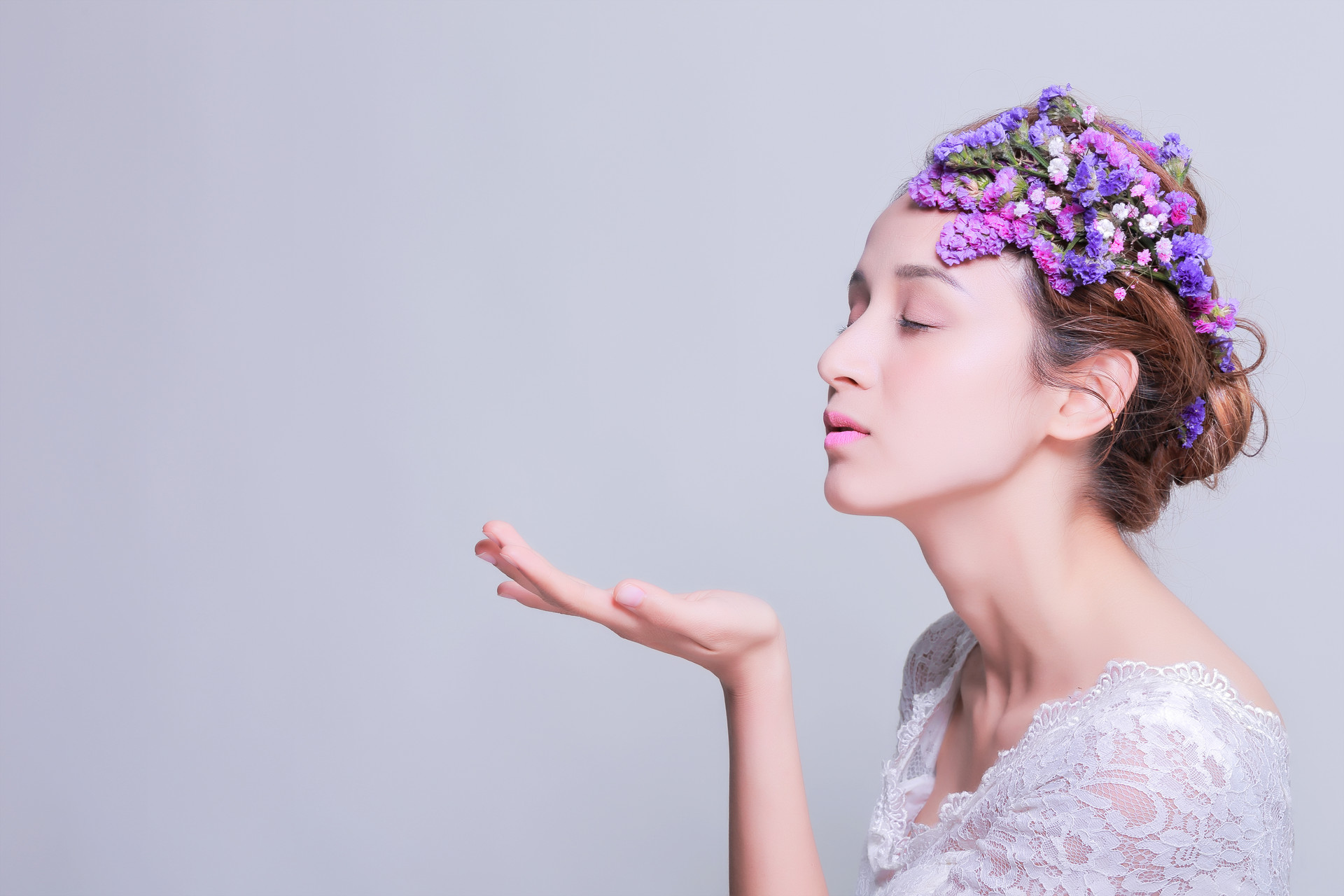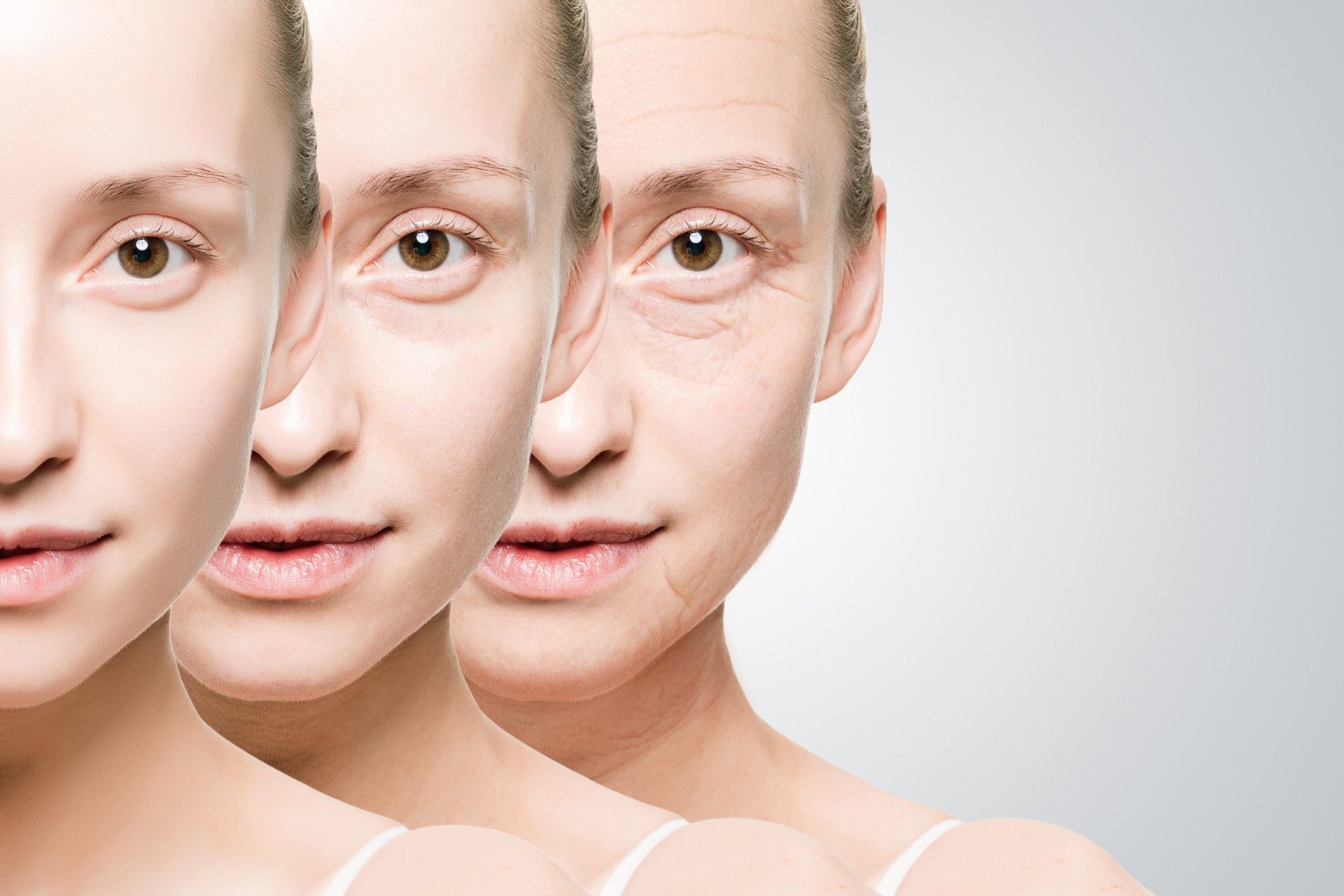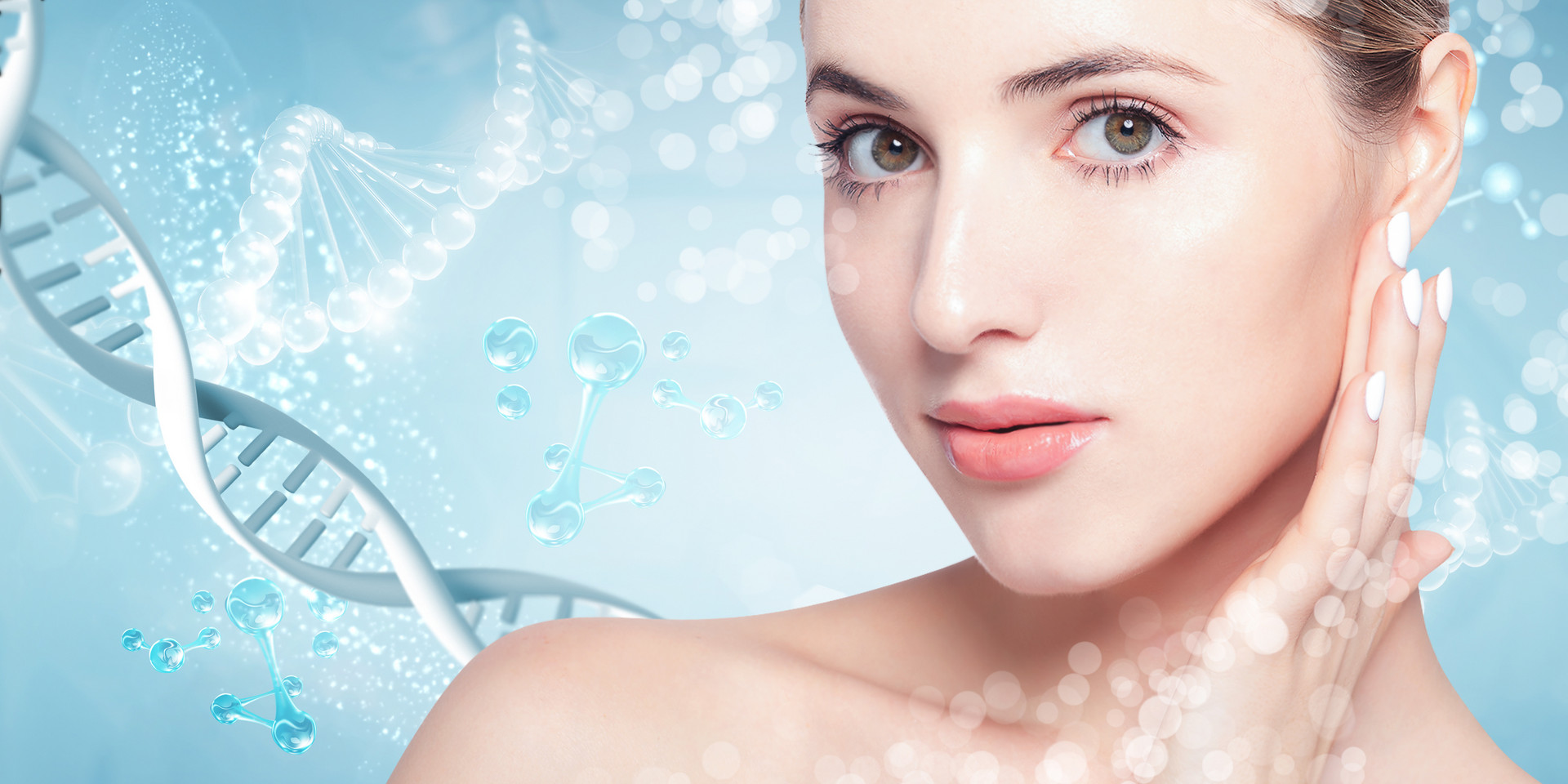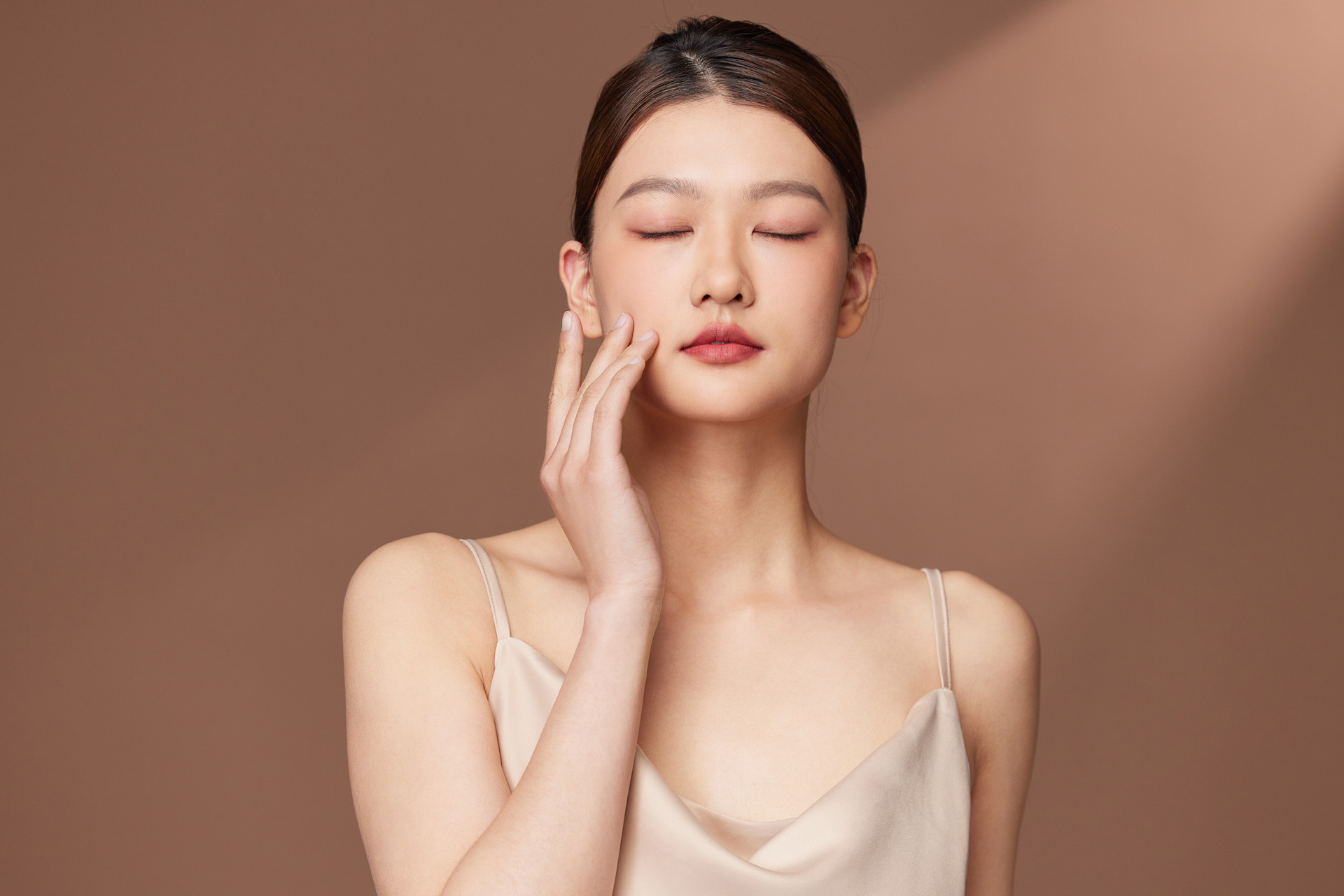Hair refers to the hair that grows on the head. Hair is not an organ, so it does not contain nerves and blood vessels, but it does contain cells. In addition to enhancing aesthetics, hair is mainly used to protect the head. Soft and fluffy hair has elasticity, which can resist light impact and help the evaporation of sweat on the head. The average person has about 100,000 hairs, and among all hair types, the hair on the head is the longest, especially for women with long hair. Some hair can grow up to 90-100cm, or even 150cm, but generally not more than 200cm. The human body naturally sheds 50 to 100 hairs every day. If more than 100 hairs fall out, it is called hair loss.
The color of hair is generally determined by genes, commonly including black, blonde, brown, and red. When humans age, their hair usually turns silver-white. Due to different races and regions, hair can be black, blonde, reddish-brown, red-brown, light yellow, gray-white, and even green and red. Hair can also be dyed into various colors. Scientific research has proven that the color of hair is related to the different metallic elements contained in the hair. Black hair contains equal amounts of copper, iron, and melanin. When the nickel content increases, it turns gray-white. Golden hair contains titanium, reddish-brown hair contains molybdenum, and green hair contains an excess of copper. In some African countries, some children have red hair due to severe protein deficiency.
Physiological characteristics of hair mainly depend on the hair papilla, hair follicles, hair roots, and hair shafts below the scalp epidermis.
Physical properties of hair: The root of the hair is thicker, and it becomes thinner towards the ends, so the diameter of the hair also varies, including general hair, thick hair, and thin hair.
The shape of hair can be divided into straight hair, wavy hair, and naturally curly hair. The cross-sectional shape of straight hair is round, the cross-sectional shape of wavy hair is elliptical, and the cross-sectional shape of naturally curly hair is flat. The thickness of hair is not related to whether it is straight or curly.
The water absorption of hair: The water content in normal hair is about 10%.
Hair elasticity refers to the ability of hair to be stretched to its maximum length and still bounce back to its original shape. A single hair can be stretched by about 40-60%, and this elasticity is determined by the cortex. Hair tension refers to the force that hair can withstand without breaking when pulled to its limit. A healthy hair can support a weight of about 100-150 grams.
The formation of various shapes of hair is mainly determined by the composition of the hair components. The curling of hair is generally believed to be related to its keratinization process. Curly hair is often located eccentrically in the hair follicle. That is to say, the root sheath is thicker on one side and thinner on the other side. The keratinization of the hair bulb cells near the thin root sheath starts earlier, while the keratinization on the side near the thick root sheath starts later, which hinders the growth rate of the hair. As a result, the half with early keratinization is slightly shorter than the other half, resulting in the hair curling towards the side with early keratinization.
In addition, the cortex and cuticle of the hair are hard proteins (containing sulfur), while the medulla and inner root sheath are soft proteins (without sulfur). Due to the different properties of keratin proteins, the timing of keratinization has a certain impact. If three hair follicles open into one hair pore, or one hair follicle has two hairs, the arrangement of keratinized cells in the hair may change, resulting in curly hair growth.
Perming makes the hair curly by artificially twisting the keratin proteins.
Fruit hair care:
Human hair, like skin, needs regular moisturizing and nourishment, and the nutrients in natural plants, especially fruits, are more easily absorbed by the human body. The following fruits are good ingredients for nourishing hair.
Kiwi: Kiwi can be called the king of nutrients in fruits. It is rich in carotene, vitamin C, arginine, and ALA acid. In addition to its outstanding abilities to resist radiation, oxidation, free radicals, and aging, it also contains a large amount of ALA acid, which can help maintain moisture in the hair and prevent hair dryness, thereby comprehensively improving the condition of the hair.
Citrus: Citrus, also known as tangerine, contains a large amount of vitamin C, and citrus essential oil extracted from citrus peel can enhance the body's immune system, calm the nerves, eliminate anxiety and psychological pressure. When citrus essential oil is used in hair care, it can have a cooling and refreshing effect and remove dandruff.
Starfruit: Starfruit is known as the vitality elf. It contains sucrose, fructose, glucose, as well as apple acid, citric acid, oxalic acid, vitamin B, vitamin C, trace fat, protein, and other nutrients. It can help digestion, nourishment, and health, and has a moisturizing and elasticizing effect on the hair, restoring its natural beauty.
Peach: Peach contains nutrients such as protein, fat, sugar, calcium, phosphorus, iron, vitamin B, vitamin C, etc. It has the effect of deep moisturizing and firming the skin, making the skin moist, elastic, and enhancing the skin's resistance. At the same time, peaches can provide high moisturizing and nourishing effects on the hair, enhancing its softness.
Apple: Apples contain a large amount of nutrients needed for the skin and hair. Malic acid can prevent dryness of the skin and hair, vitamin C has a whitening effect on the skin, and pectin can maintain the moisture of the skin and hair. In addition, the nutrients in apples can also inhibit the growth of dandruff, calm the scalp, and relieve itching.
Interesting facts:
In Orlando, Florida, on March 1, 2016, Asha Mandela, a 50-year-old woman from Florida, became the woman with the longest hair in the world. Her hair is about 16.8 meters (55 feet) long, longer than a London bus. She is now married to a hairstylist from Kenya, Emmanuel Chege, and they are a perfect match.
Hair loss troubles:
Hair has its own lifespan. When it grows to a certain length, its lifespan ends, and it naturally falls out. This is a normal phenomenon. Hair loss that falls into this category is common to everyone and occurs frequently. Abnormal hair loss is due to the influence on hair growth. Hair growth requires nutrition, which is delivered through blood. If a person is frequently ill, physically weak, and has poor nutrition, the hair will fall out due to lack of nutrition and poor growth. Such people are more prone to hair loss, and the amount of hair loss is usually greater. Some people experience sparse hair growth after a serious illness, which may be the reason.
If a person uses their brain excessively or frequently worries, becomes anxious, or encounters something that causes intense mental stimulation, the brain's activities become disordered, and some people experience intense hair loss overnight. This is commonly referred to as "ghostly shaving," but it is actually caused by hair loss.
The growth of hair originally has a cycle of growth and aging, and natural physiological hair loss occurs every day. However, some hair loss is caused by pathological factors. In young people, the most common is alopecia areata, also known as "ghostly shaving." This is a condition in which a block of hair in a scalp suddenly enters the growth stage and falls out suddenly due to pressure and emotions. After treatment, hair can regrow within three to five months.
The causes of hair loss are related to nutrition and mental stress. It is recommended to check for trace elements in the blood and avoid being in a constant state of mental stress. Regularly rub the affected area with ginger to promote hair growth. Maintain a comprehensive diet, eat more hard-shell foods, and eat black sesame appropriately.
Adequate sleep can promote the normal metabolism of the skin and hair, and the metabolic period mainly occurs at night, especially between 10 pm and 2 am. Try to get at least 6 hours of sleep every day and develop a regular sleep habit. Pay attention to diet and nutrition, eat foods rich in protein and trace elements, eat more vegetables and fruits, and eat less greasy and high-sugar foods.
Hair dyeing, perming, and blow-drying can cause certain damage to the hair. Hair dye and perm solutions have a significant impact on the hair. Frequent use can make the hair lose its luster and elasticity, and even turn yellow and dry. Ultraviolet rays in sunlight can also damage the hair, making it dry and yellow. The warm and humid air and cold air from air conditioners can also cause hair loss and white hair. Dry or excessively humid air is not conducive to protecting the hair. The interval between hair dyeing and perming should be at least 3-6 months. In summer, avoid direct sunlight, and pay attention to protection when swimming or sunbathing.
In summer, hair can be washed 3-7 times a week, and in winter, 1-3 times a week. The water temperature should not exceed 40°C, close to body temperature of 37°C. Avoid using degreasing or alkaline shampoos, as these shampoos have strong degreasing and dehydrating properties, which can make the hair dry and the scalp damaged. Choose non-irritating, non-acidic natural shampoos, or choose according to your own hair type. Do not use plastic combs. The best choice is a boxwood comb and a boar bristle brush, which can remove dandruff and massage the scalp, promoting blood circulation.
Traditional Chinese medicine treatment principles for hair loss:
1. Heart and kidney deficiency, blood deficiency causing hair loss:
Symptoms: Hair loss (alopecia areata, thinning hair, complete baldness), shiny scalp, slight itching, no discomfort in the affected area, accompanied by insomnia, tinnitus, red tongue with little coating, thin and rapid pulse, etc.
Treatment: Tonify the kidney and calm the mind, nourish the blood and promote hair growth.
Prescription: Anshen Buzhen Decoction: Semen Ziziphi Spinosae 20g, Radix Polygalae 12g, Rhizoma Polygonati 12g, Rhizoma Dioscoreae 12g, Caulis Polygoni Multiflori 20g, Semen Biotae 12g, Fructus Lycii 15g, Fructus Corni 20g, Radix Salviae Miltiorrhizae 12g, Fructus Gardeniae 12g, Fructus Schisandrae Chinensis 12g, Fructus Terminaliae Chebulae 12g, Fructus Terminaliae Bellericae 12g, Radix Angelicae Sinensis 12g, Radix Paeoniae Alba 12g, Radix Glycyrrhizae 6g. Decoction and take orally. Jingwu Pill, Huanshao Pill can be taken orally.
2. Liver and kidney deficiency, blood deficiency causing hair loss:
Symptoms: Hair loss (alopecia areata, complete or eyebrow and eyelash loss), shiny scalp, a few scattered downy hair, the remaining hair falls off easily upon touch, accompanied by itching and scaling, poor appetite, restless sleep, dreams, delayed menstruation, pale tongue, thin white coating, slippery pulse, etc.
Treatment: Tonify the liver and kidney, nourish the blood and promote hair growth.
Prescription: Zishen Shengfa Decoction: Radix Rehmanniae Praeparata 30g, Radix Paeoniae Alba 20g, Fructus Longan 20g, Fructus Corni 20g, Fructus Lycii 20g, Fructus Mori 15g, Rhizoma Polygonati 15g, Semen Coicis 12g, Radix Polygoni Multiflori 12g, Radix Astragali 12g, Radix Angelicae Sinensis 12g, Radix Ophiopogonis 15g, Radix Ligustici Chuanxiong 12g, Radix Paeoniae Rubrae 12g, Radix Glycyrrhizae 6g. Decoction and take orally. Lingzhi Pill, Buzhen Pill can be taken orally.
3. Liver depression and blood deficiency causing hair loss:
Symptoms: Hair loss (alopecia areata, thinning hair), irritability, anxiety, mental tension, restless sleep, pale face, poor appetite, pale tongue, thin and stringy pulse, etc.
Treatment: Soothe the liver and nourish the blood.
Prescription: Shugan Yangxue Decoction: Bupleuri Radix 12g, Curcuma Radix 12g, Cyperus Rotundus 12g, Acorus Tatarinowii 12g, Citrus Reticulata 12g, Citrus Aurantium 20g, Forsythiae Fructus 20g, Lonicerae Japonicae Flos 20g, Morus Alba 12g, Scutellariae Radix 20g, Gardeniae Fructus 12g, Fructus Aurantii Immaturus 12g, Radix Aucklandiae 15g, Radix Platycodi 15g, Radix Glycyrrhizae 6g. Decoction and take orally. Shugan Pill, Zhenshu Pill can be taken orally.
4. Excessive wind and blood dryness, loss of hair nourishment:
Symptoms: Hair loss, itchy scalp, dizziness, fatigue, poor appetite, pale complexion, dry throat, cough with sweating, headache, thin yellow tongue coating, and floating or slippery pulse.
Treatment: Disperse wind, clear heat, cool the blood, and nourish the hair.
Prescription: Qingfei Liangxue Decoction: Scutellariae Radix 12g, Trichosanthes Kirilowii 20g, Cortex Moutan 15g, Mori Cortex 12g, Radix Scrophulariae 12g, Flos Chrysanthemi Indici 12g, Herba Menthae 12g, Radix Isatidis 12g, Radix Aucklandiae 12g, Radix Saposhnikoviae 12g, Radix Arnebiae 12g, Radix Rehmanniae 20g, Radix Salviae Miltiorrhizae 12g, Radix Curcumae 12g, Radix Angelicae Sinensis 12g, Radix Glycyrrhizae 6g. Decoction and take orally. Reyaning, Wufu Pill can be taken orally.
5. Wind excess and blood dryness, loss of hair nourishment:
Symptoms: Hair loss, hair itching, dizziness, fatigue, poor appetite, pale complexion, pale and tasteless mouth, worse in the evening, loose stools, pale complexion.
Treatment: Clear the wind, cool the blood, and moisten the hair.
Prescription: Qingfei Liangxue Decoction: Scutellariae Radix 12g, Cucurbitae Semen 20g, Cortex Dictamni Dasycarpi 15g, Cortex Mori 12g, Radix Peucedani 12g, Flos Lonicerae Japonicae 12g, Herba Menthae 12g, Radix Isatidis 12g, Radix Aucklandiae 12g, Radix Saposhnikoviae 12g, Radix Lithospermi 12g, Radix Rehmanniae 20g, Radix Salviae Miltiorrhizae 12g, Curcumae Radix 12g, Radix Angelicae Sinensis 12g, Radix Glycyrrhizae 6g. Decoction and take orally. Reyaning, Wufu Pill can be taken orally.






